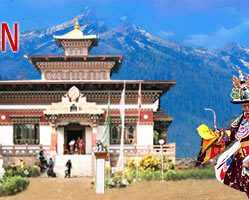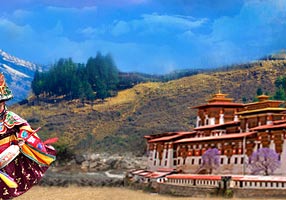Traditional medicine has been an official part of Bhutan's public health system along with Western-style medicine since 1967. It is based on Tibetan traditional medicine. Like Tibetan medicinal system, traditional ways of diagnosis in Bhutan are - feeling the pulse, checking urine, examining the eyes and tongue of the patient and interviewing the patient. The treatment is done with the help of acupuncture and acupressure therapy that includes using the golden needle, herbal combinations, using metal rods for applications of heat and minor surgical interventions that are based on Buddhist rituals. Other traditional ways to treat a patient in Bhutan include nasal irrigation, bloodletting, massage and stone-heated baths.
The major difference between traditional medicine of Bhutan and Western medicine is that Bhutanese traditional medicine system targets organs rather than microorganisms. Bhutan's Institute of Traditional Medicine Services at Thimphu provides medical services, trains traditional doctors, conducts research on centuries-old remedies and Bhutan's medicinal plants and helps in developing new health products. It has a library that has recipes collected from monasteries and dating back to the time when Tibetan Buddhism was introduced in Bhutan around 1616. This medical institute of Bhutan is similar to the Mentsekhang or the Tibetan Medical Institute at Lhasa.
Bhutanese herbal medicine is either in form of herbal powders to be swallowed down with warm water or even as pills these days. Specific Bhutanese formulas may differ a bit from Tibetan formulas in the local selection of herbs. About 3,000 species of plant are used in Bhutanese medicines and local folk remedies of Bhutan. However, today people rely on modern medicines for the treatment of acute and severe diseases. Bhutanese and Tibetan medicines have not been studied strictly because of their complexity (some remedies use dozens of ingredients), variability (finished formulas vary in terms of ingredients used and the constituent levels within plants), unique traditional medical applications and sometimes, toxicity. Village healers often use crude methods such as using unsanitary blades for bloodletting that complicates things sometimes.




